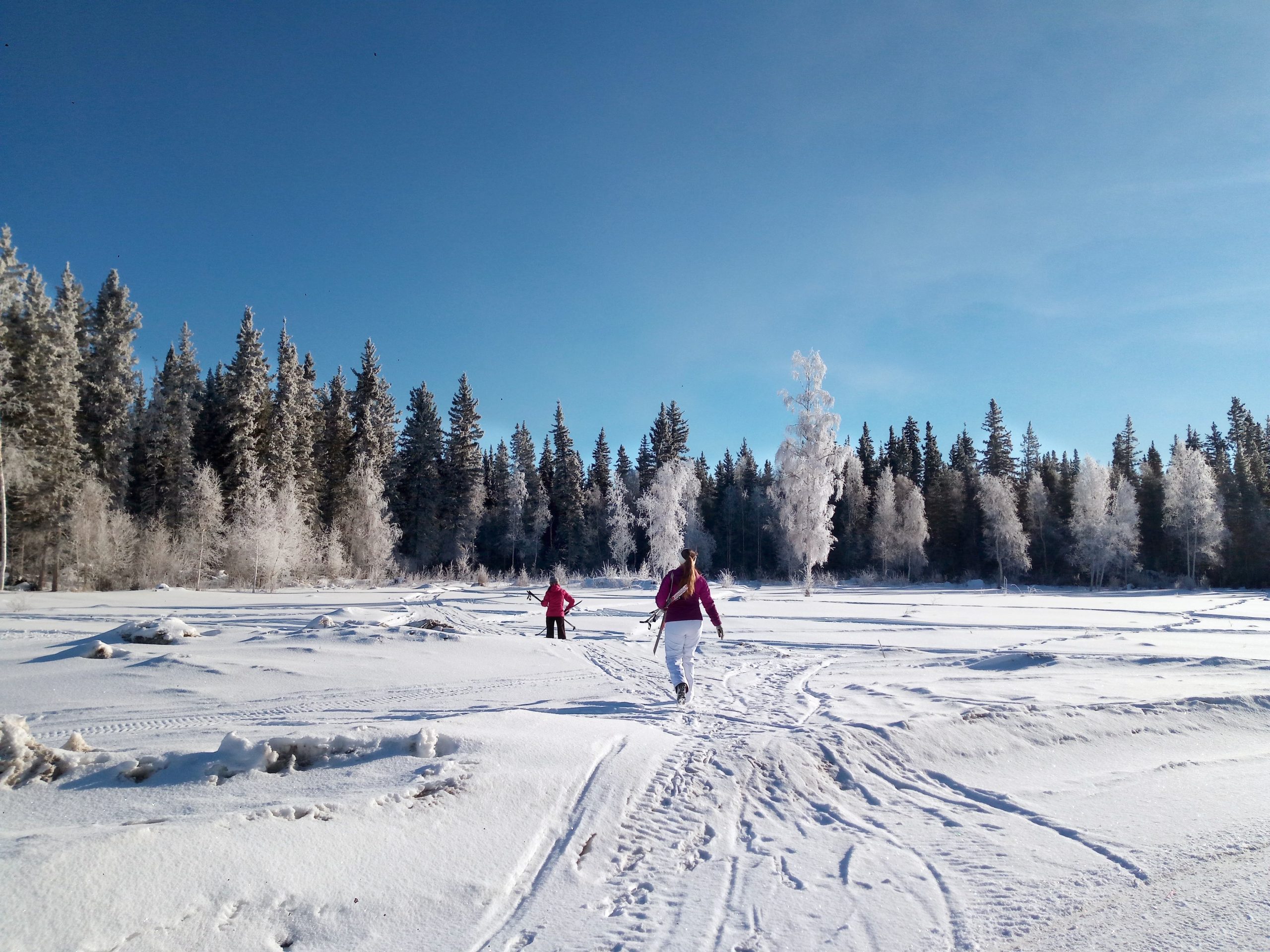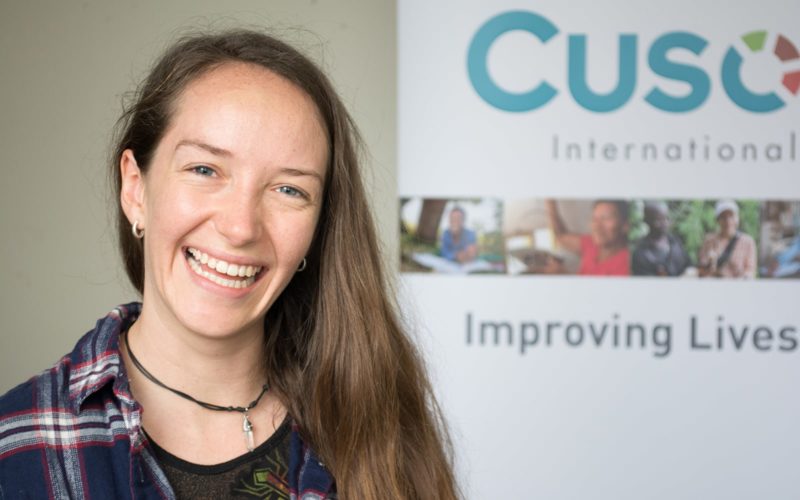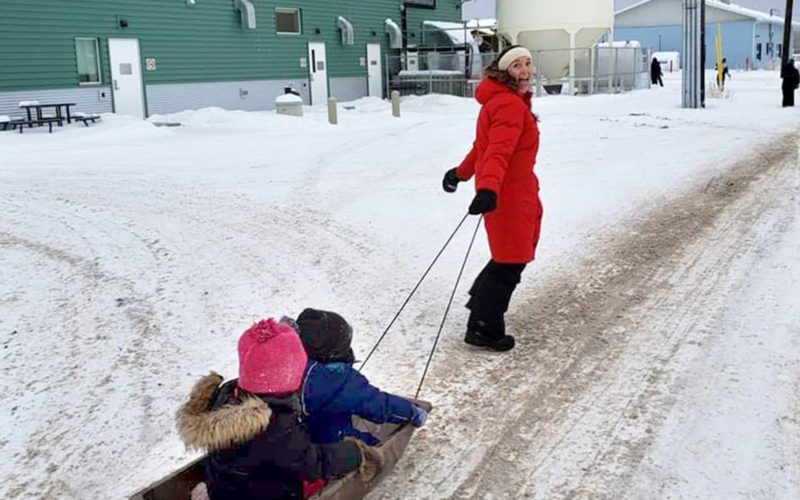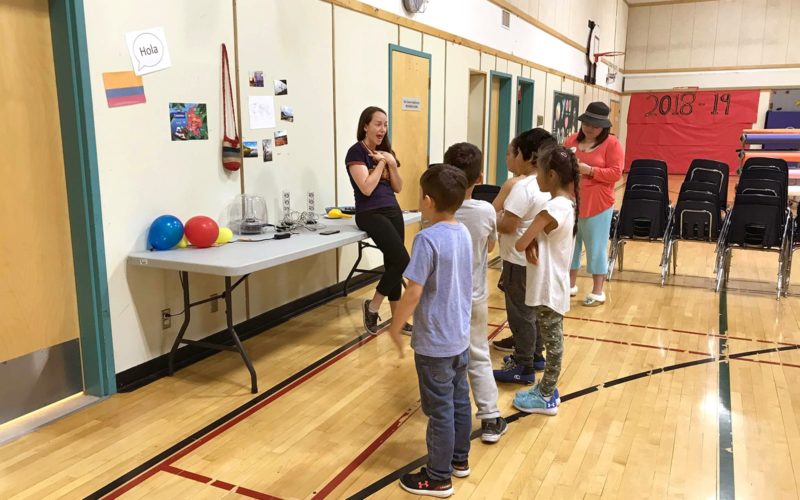Q+A: Lois Boody
Story

Torontonian Lois Boody spent the past school year working with students in Fort Resolution, NT. The 25-year-old English language specialist, who is now pursuing a certificate in international development from the University of British Columbia, discusses her experience in the North and what it meant to see her students succeed.
Q: What did your placement entail?
The main role of my placement was Distance Learning Monitor. Students took academic-level classes via a large screen connected to multiple communities. The principal teacher was based in another community in the Northwest Territories, so I served as a liaison between this teacher and my students. Courses I helped with included Grade 11 biology, and grades 10 to 12 English.
I also taught gym for kindergarten to Grade 9 students, helped with the breakfast program and offered one-on-one literacy and numeracy support for grades 1 and 2 students. I loved doing extra activities too—I coached the outdoor soccer team, assisted the track and field team, and often helped students with homework after school. I also had the chance to chaperone students to various conferences and events in other communities.

Q: Where were you living?
My placement community was Fort Resolution, locally known as “Fort Res” or just “Res.” This is a small hamlet of about 500 people that sits on the shores of Great Slave Lake. It’s the site of the Deninu Kue First Nation and there is also a large Metis population. There’s a small grocery store, a convenience store, one diner and one K-12 school. While I was there, they built a beautiful boardwalk that goes along the lake to a nearby site called Mission Island. The closest bigger town, Hay River, was an hour and a half away.
Q: Why did you decide to volunteer?
When I saw Cuso’s Canadian program, I became intrigued. It’s a part of the country that most people don’t know much about, including myself at the time. Personally, I’m passionate about education and development and hope to eventually pursue a career in this field. I also love learning about different cultures, I’m committed to doing my part to further Reconciliation efforts with Indigenous peoples, and I love being in the outdoors.
Seeing there was a need for education assistants in the Northwest Territories sounded like the perfect opportunity to offer my skills while also learning and experiencing so much myself. For anyone who is interested in going up North to work in a similar position, go for it. It was such an incredible learning experience and I’m so grateful to Cuso for sending me.
 Q: What stands out as the most memorable experience from your placement?
Q: What stands out as the most memorable experience from your placement?
It’s hard to decide what the most memorable experience was since there were so many—but one definite highlight was attending the three-day track and field competition in Hay River. It’s one of the biggest school sporting events in the territory and being there with our students, feeling their excitement and seeing their successes, was so amazing. I also enjoyed participating myself in two events, one of which I got to run with one of my high school students.
Q: What was the most challenging aspect of your volunteer experience, and how did you overcome it?
One of the most challenging things for me during my placement was trying to get more involved within the community. With such a small population, there are not a lot of formal opportunities or events to get to know people outside of the school setting. I was able to work on overcoming this when I found out about a Ladies Night that happened most weeks. When I started attending, I found I was able to make stronger connections with community members while also learning some cool new skills like making jewellery.
There were also a lot more community activities in the warmer months of spring and summer. I got to meet more people and participate in activities like a Traditional Race (a six-person relay of running, biking and canoeing) and axe-throwing.
 Q: Do you have a success story to share?
Q: Do you have a success story to share?
One success story from my placement was organizing and implementing an “Around the World” event during the final week of classes with the other volunteer in Fort Resolution. Students from K-9 participated and high school students helped run it. Students were split into groups and had passports—they rotated between places in the school visiting different country stations.
Each station was run by a staff member and consisted of learning about the place and doing a simple activity to get their passport stamped. I taught salsa in the Colombia station, then there was also brigadeiro-making in Brazil, puzzles in Sweden, tea and soccer in England, writing names in Korea, and learning about international currencies in Bangladesh, among other activities. Students who excelled in different activities received certificates for their hard work and everyone had lots of fun.